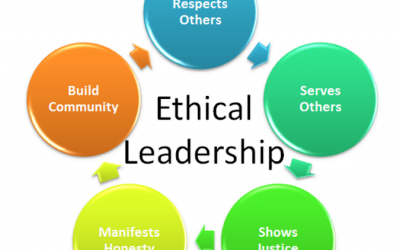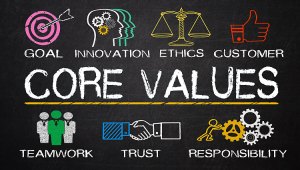Leadership ethics inspires others to follow you by looking at your decision making style and your listening habits. In 25 plus years I’ve had the opportunity to work with some great executives who leadership ethics inspires others to follow whose characteristics separate these individuals from the rest.
One of the most compelling definitions of a leader is an individual whose mere presence inspires the desire to follow. When asked if leaders are born or bred, the general consensus is that leadership can be taught. Few have had the opportunity to be formally trained or mentored in proper ethics. NextGen Global Executive Search specializes in identifying and recruiting senior executives and functional leaders have the highest ethics in leading others.
Leadership Ethics Inspires Others to Follow
In today’s turbulent world, the type of leadership ethics inspire others to follow are present at a number of executive managers who devote their time and energy to leading the process of value creation. It is this part of an individual that inspires others to follow. We see character as the summation of an individual’s principles, values, and core beliefs by which one anchors and measures their behavior in all roles in life. If character is the summation of our principles and values, then leadership ethics are the application of them.
 Business Leadership Ethics, according to Aristotle, is moral virtue that comes about as a result of habit. Ethics has as its root “ethike,” formed by the slight variation of the word ethos (habit). Aristotle explained that moral virtues do not arise in us by nature; we must accept them, embrace them and perfect them by habit.
Business Leadership Ethics, according to Aristotle, is moral virtue that comes about as a result of habit. Ethics has as its root “ethike,” formed by the slight variation of the word ethos (habit). Aristotle explained that moral virtues do not arise in us by nature; we must accept them, embrace them and perfect them by habit.
Leadership consultant and author Linda Fisher Thornton in her book “7 Lenses: Learning the Principles and Practices of Ethical Leadership” (2013) stated that “ethical leaders have a tremendous impact on how people in their organizations behave and what they achieve,” Thornton said. “Effective leaders focus on what’s right and exemplify to their people that they are there to help, and not to exploit the vulnerabilities of others.”
Training for Leadership Ethics Inspires Others
Leadership ethics training in business emphasizes understanding leader values and attributes is only the first step in development. In the business development role, success requires a fusion of who we are as an individual, along with our principles, values, ethics, and their application.
One example is Lockheed Martin, where annual training starts at the very top of their organization. Chairman, President and CEO, Marillyn Hewson, trains her staff who themselves then train their respective teams, and this pattern continues until all employees have participated in a training session facilitated by their manager.


 Working in a business organization means that you will be working with people. Communication does not only mean relaying what you want to express through words, but through your actions as well. Most, if not all jobs require effective social skills to interact efficiently with their colleagues, clients, suppliers, and senior management.
Working in a business organization means that you will be working with people. Communication does not only mean relaying what you want to express through words, but through your actions as well. Most, if not all jobs require effective social skills to interact efficiently with their colleagues, clients, suppliers, and senior management.
 To lead is to show the way by going in advance. To lead is to guide or direct a course of action. To lead is to influence the behavior or opinion of others. We all need to be leaders, regardless of our formal title or role.
To lead is to show the way by going in advance. To lead is to guide or direct a course of action. To lead is to influence the behavior or opinion of others. We all need to be leaders, regardless of our formal title or role.
 Among list of recipients means that there are many personalities that is addressed to. Email marketing may tend to derail with what is the initial focus due to its mindset onto building lists and sending out numerous updates.
Among list of recipients means that there are many personalities that is addressed to. Email marketing may tend to derail with what is the initial focus due to its mindset onto building lists and sending out numerous updates.
 While HR policies work for most employees, the executive evaluation process is unique in that it measures the impact on the company’s essential point. Many companies make the fatal mistake of using a one-size-fits-all onboarding process driven by Human Resources which is really nothing more than an abridged orientation.
While HR policies work for most employees, the executive evaluation process is unique in that it measures the impact on the company’s essential point. Many companies make the fatal mistake of using a one-size-fits-all onboarding process driven by Human Resources which is really nothing more than an abridged orientation.